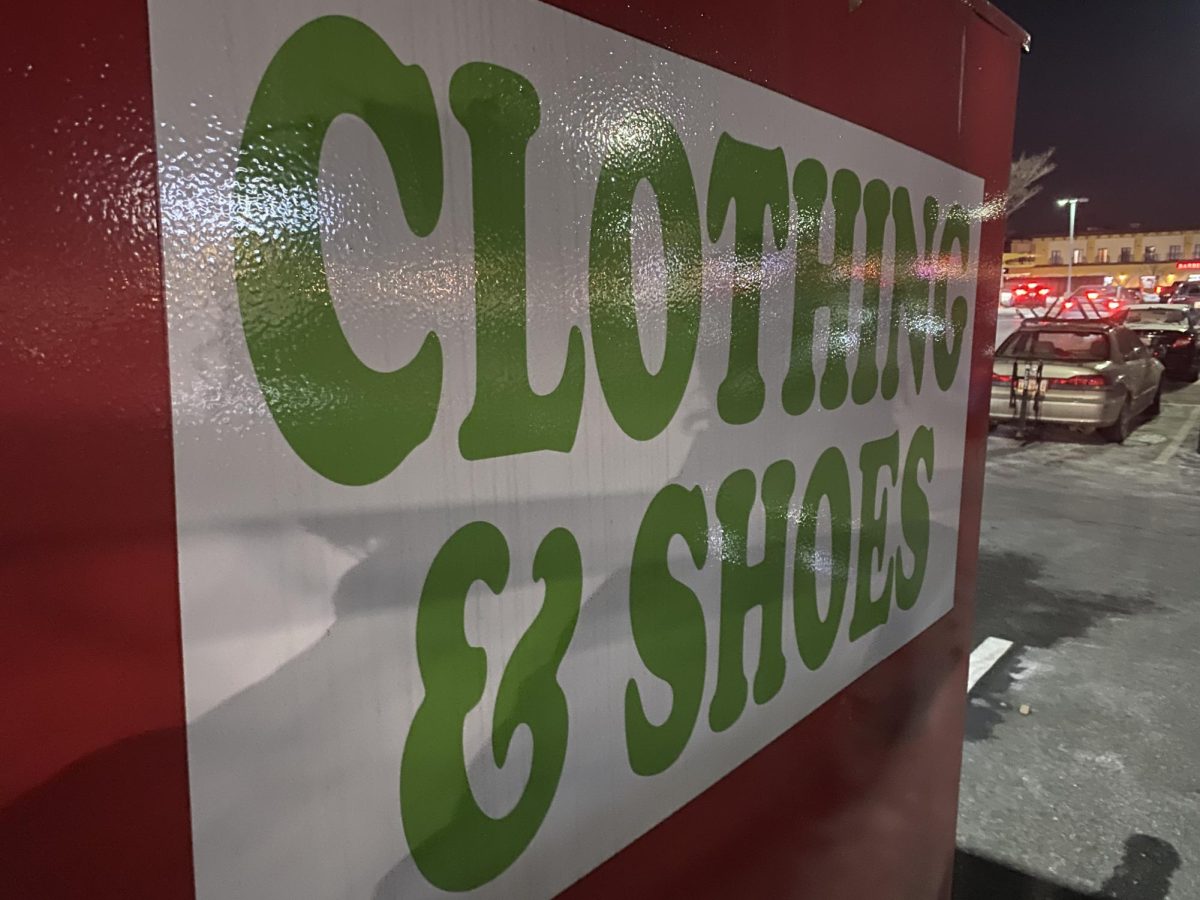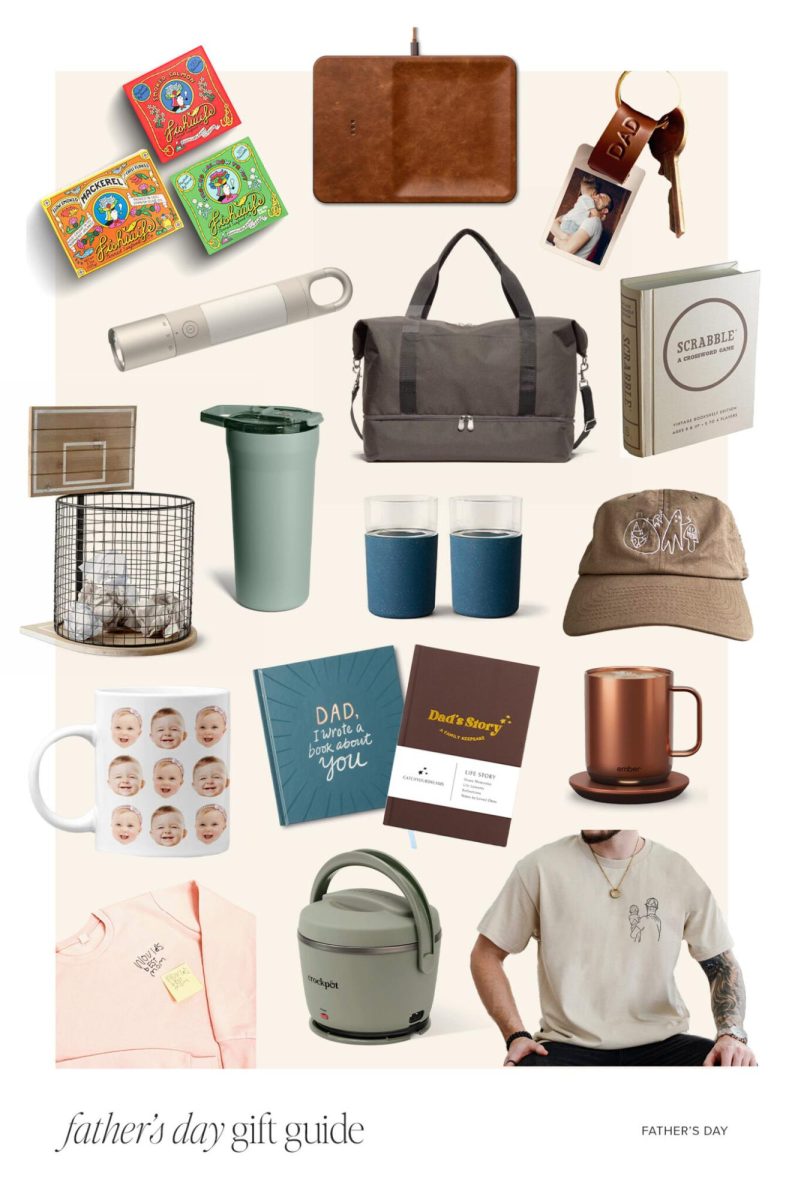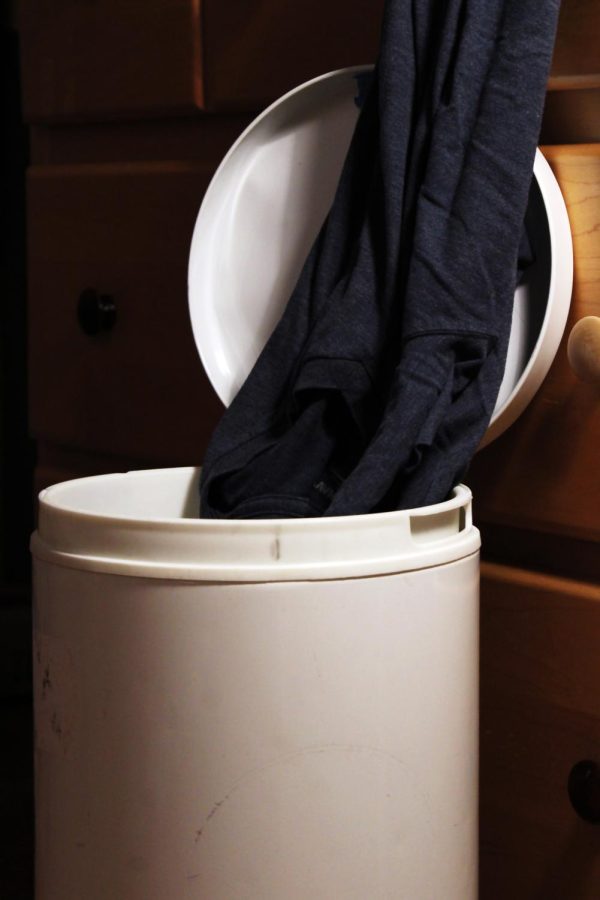SweatStop: A Teen’s Guide to Rejecting Fast Fashion
The brands that run our economy constantly produce low-grade clothing using underpaid labor. To stop this unfashionable trend, try these five sustainability tips.
Fast fashion leads to waste
February 3, 2023
“I have a ridiculous amount of shirts…probably like 60, and I definitely only wear like five to ten-ish,” admitted B-CC freshman Jessa Rosenberg. If you examine your own closet, you might find something similar. Overconsumption is easy, especially when fast fashion is everywhere. The brands that run our economy constantly produce low-grade clothing using underpaid labor. To stop this unfashionable trend, try these five sustainability tips.
Re-fashion what you have
To be a conscious shopper, you have to know your style. Identifying your style requires a free Sunday afternoon. Take all your clothes and put them in front of you. You want three piles. The first of clothes you never wear, the next of “staple” clothes that you nearly always wear, and the last of those that tend to rotate.
Notice the staples: what fits and cuts are you most drawn to? What colors do you have the most of? Take a mental note of this. Our brains love new things, but they don’t have to be new according to the manufacturing date; they just need to be new to your eyes.
Turn your attention to the clothing items you never wear and attempt to refashion them. Like, really attempt. Make it a mental game—wear it a different way, pair it with a staple, match it with something unexpected—it doesn’t matter. If you’re successful, you now have something new to wear.
Trade with your friends.
Can’t re-fashion? Swap! Take everything out of your closet except the staples you identified earlier. Get together a group of friends willing to trade and refresh your wardrobe without making a purchase. Sometimes a shirt your friend has grown bored of is the same one you have eyed for weeks. Stick to close friends if you want to trade back. Nevertheless, reject throwaway culture.
Try Online.
Don’t dig your friends’ style? No problem. There are a million friends online waiting to trade with you on sites like Depop, Mercari, and Poshmark. The website SwapSociety allows you to send in clothes for store credit and shop from their pre-owned collection. Similarly, the website TreadUp will send you a free “Clean Out” kit to fill up and send back to them. If your items sell on their site, you can be paid in cash and shopping credit.
Selling on these sites definitely takes patience and effort, but it’s highly rewarding; you’re paid directly, and for the most part, you can cash out almost immediately. You will have to take the time to capture high-quality pictures, set the right prices, and interact with other accounts to boost your own. Shopping also takes practice. If you’re on a budget, you can avoid the higher-priced vintage items by filtering for a certain price, brand, and style.
Shop secondhand + consignment.
“Thrifting” has become extremely popular in recent years. B-CC senior Wambui Ngugi suggested, “Make sure you go with a list or idea of what you are looking for and a budget. A lot of the time, you’ll find great deals and so much stuff, but we don’t always need it, and we tend to just buy anyway and resell later…so just avoid that.”
Controversy in thrifting springs from the concept of thrift store gentrification. Some Depop and Mercari sellers get their items from thrift stores and sell them online for double the price, which turns into making money over taking a step for our planet. Make sure you choose your thrift store with awareness and intention!
Shop ethical brands.
Knowing your brands is an integral part of being an ethical shopper. If Google can tell you anything, it’s that brands like Shien have done almost everything an ethical company shouldn’t. If you do your research, you’ll eventually find that the brands most conscious of their impact on the world are also the most expensive. However, most teenagers can’t drop $150 on one pair of certified organic, biodegradable jeans made by employers who are paid double the minimum wage—which is why this unfortunately comes in at #5.









































